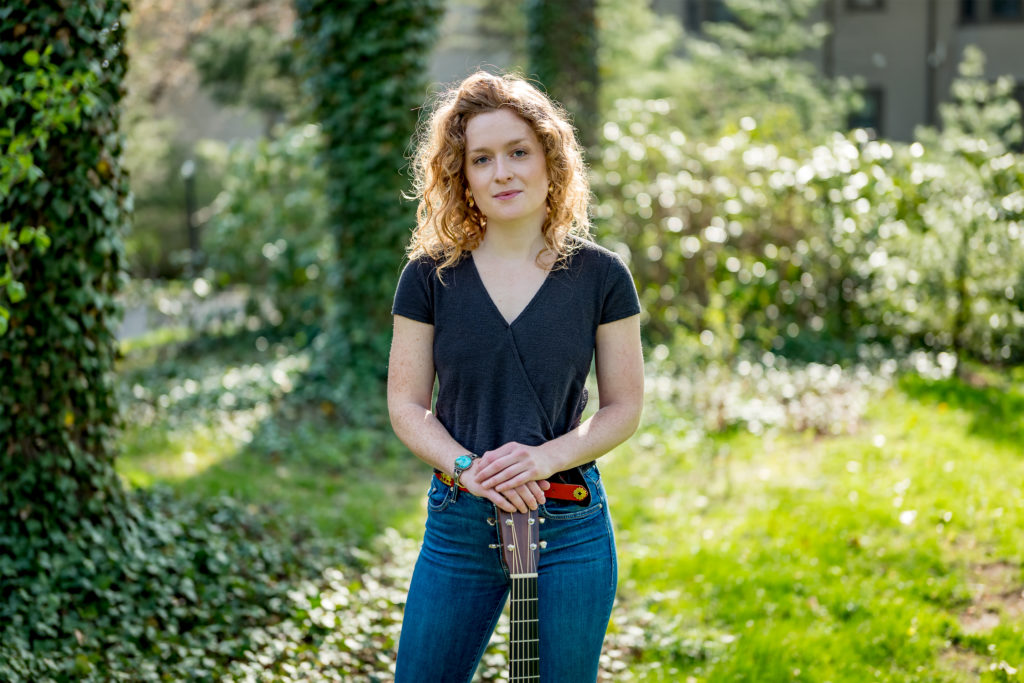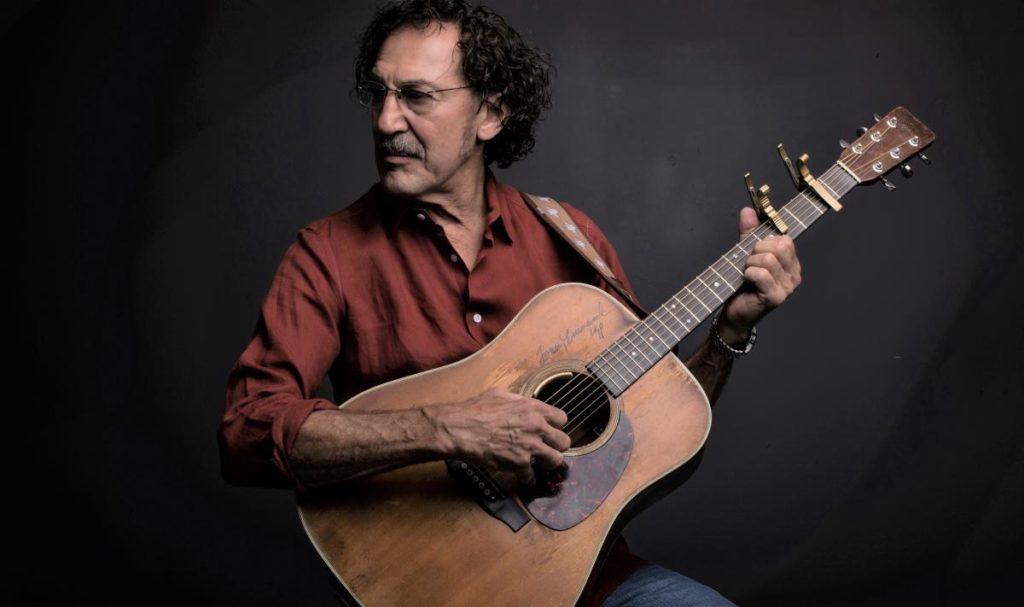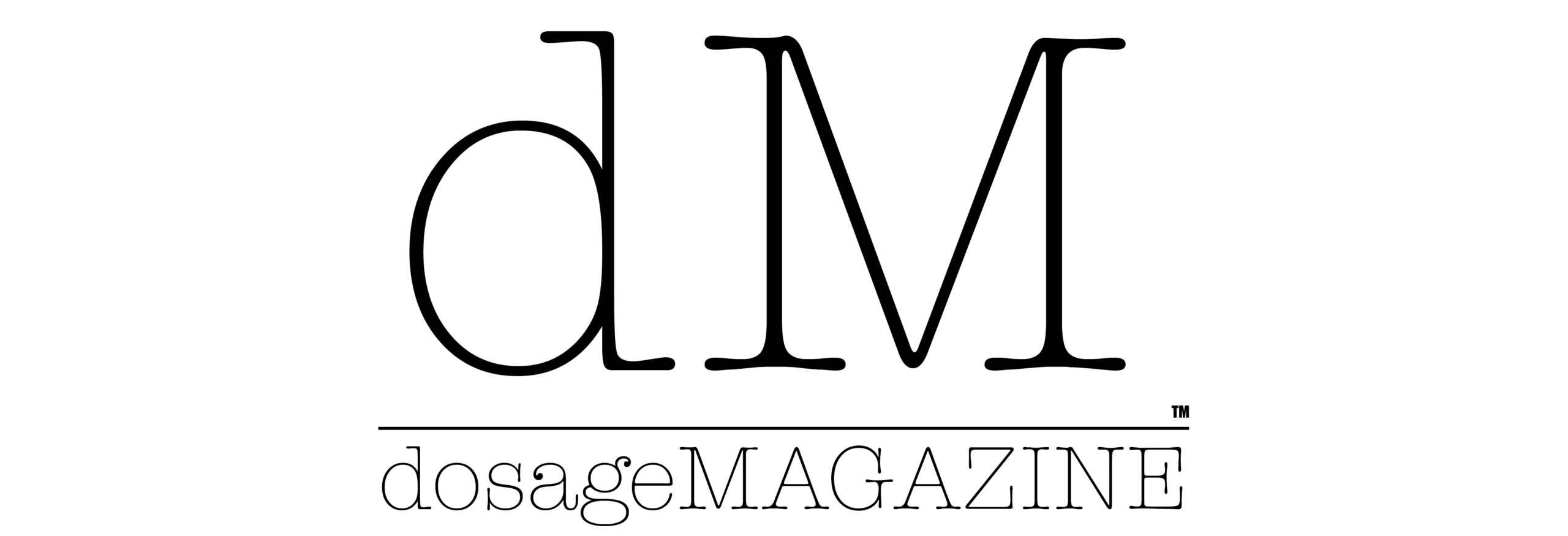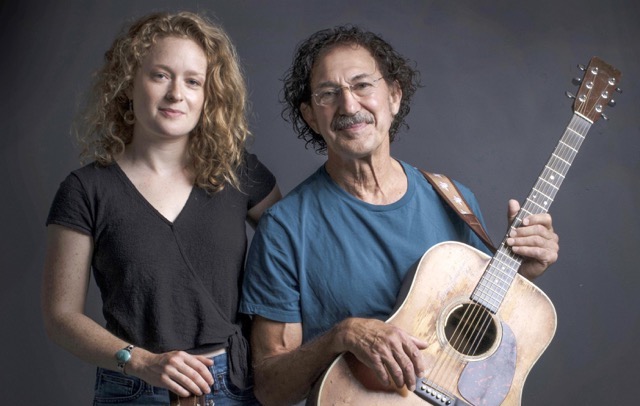
When Boston-born, soulful nu-folkie Alice Howe returns to the east coast for a show at Roxborough’s PFS Folk Society, tonight, Thursday, November 14, she’ll do so with her touring partner, record producer, bass and tuba guru, and overall spiritual elder, Freebo B Freebo. Freebo, a Philadelphia legend and highly regarded session man who played with Lowell George, Crosby Stills and Nash and, most prominently, with Bonnie Raitt, is beloved for having co-founded Edison Electric, one of this city’s craftiest and good time folk-soul acts of the late 1960s. Plus, he’s got a sturdy five solo album catalog that equals, if not surpasses, Edison Electric’s brilliance. To say that catching up with Freebo was an honor – and a bout of fact-finding illumination – is an understatement.
A.D. Amorosi: So, how did you become ‘Freebo’ in the first place, and who gave you that name, and when?
Freebo: OK… I became Freebo on an acid trip in 1967 in Philadelphia. I was in a rock and roll band called Edison Electric, and like so many at that time, I was growing my hair long. It came in curly, and one of the guys in my band thought it looked like an Afro. He started calling me “Fro” which turned into “Fro-bee” and several weeks later turned into “Freebo.” I was going through the metamorphosis that so many of us went through in the ’60s, the name felt right, and so I adopted it, or maybe it adopted me.
A.D. Amorosi: Were you from Philadelphia, to begin with?
Freebo: I grew up in a small upstate Pennsylvania coal town called Mahanoy City. After spending my first eighteen years there, I went to college in Philadelphia at Swarthmore. Two years later, I found myself in a school in Germany, where my roommate was a fellow named Jerry Donahue. Jerry was quite a good guitar player at the time (years later he was in Fairport Convention), and I had learned a few guitar chords and licks in high school. I borrowed a guitar, jammed with Jerry for a few minutes, and he soon noticed that I was playing bass riffs. He said, “You’re a natural bass player. We need to get you a bass.” Well, we did, a Framus bass guitar for $12.50. So we started a band, and that was my first experience playing rock and roll. I returned to Philly the following year, 1966, and enrolled at the University of Pennsylvania, where I joined the Glee Club and met a guy named Mark Jordan. A friend in The Glee Club mentioned that Mark was quite the musician (he played piano and guitar), and we wound up jamming together. Mark said, “I’m starting a band, and we need a bass player.” I said, “I can do that.” And that turned into the Edison Electric Band, which lasted for five years. It’s funny how “life’s what happens when you’re busy making other plans.” Thank you, John.
A.D. Amorosi: While Edison Electric wasn’t mysterious in its sound – it was open-faced, genuine, joyful R&B-roots rock with a folksy edge – it is quizzical that the band, though signed to Cotillion, didn’t fly too far beyond Philadelphia. What do you surmise happened?
Freebo: I don’t know exactly what happened. Of course, we thought we were pretty good, and so did many others. But I guess it all turned out OK, because as soon as we broke up, I started playing with Bonnie Raitt, Mark started playing with Van Morrison, and T.J. Tindall wound up in the Gamble and Huff rhythm section. The record Edison did, Bless You Dr. Woodward, got panned in Rolling Stone, which might have had something to do with the breakup. As it turned out, years later, David Fricke wrote an apologetic article in Rolling Stone saying what a mistake Rolling Stone had made in the negative review of the record. That was extremely satisfying to read. So, in the end, I guess you could say that everything really does happen for a reason.
A.D. Amorosi: Were there a lot of other acts of your ilk, Edison Electric’s ilk, at that time in Philadelphia? I certainly know of the edgier, more abstract outfits, as well as the more psychedelic bands?
Freebo: Yes, it was an exciting time for music in Philadelphia, as it was in so much of the country. Some bands that come to mind from that time are The American Dream, The Nazz, Woody’s Truck Stop, Elizabeth, and Sweet Stavin’ Chain, to name a few.
A.D. Amorosi: How did you wind up playing the tuba? Was it from early on in your training or youth? I played the accordion as a kid, and it was quite unwieldy.
Freebo: My favorite record as a child was “Tubby The Tuba.” When entering high school, my mother suggested that I take up an instrument in the high school band, so I naturally chose the tuba! I’m glad I did because years later, I would up playing tuba on many rock and roll records, including most of Bonnie’s. I’ve always had an affinity for bass and the “bottom end” of music, and I’m guessing the tuba had a lot to do with that. Little did I know that it would define my life’s direction.
A.D. Amorosi: I know that being a part of Edison Electric led Bonnie Raitt to your doorstep and that she was a real Philly staple (Main Point, etc.) at that time, but how did you wind up making the connection in the first place, then making it last for nine years in 1980? And how did that tenure swing into a gig or work with Lowell George?
Freebo: I first met Bonnie Raitt in 1968 when the Edison Electric Band was opening for Procol Harem at the Electric Factory. Dick Waterman, manager of many blues artists including Buddy Guy, Junior Wells, Mississippi Fred MacDowell, and Son House, was interested in managing us. So he brought his 18-year old friend, Bonnie Raitt, a freshman at Radcliffe, to see us and give him her opinion of the band. It turned out she really loved the band, as well as my bass playing. She and Dick became good friends of the band, and several years later, when Edison broke up in early ’71, Bonnie asked me if I’d like to join her in Minneapolis, play on her first Warner Brothers record, and do some shows together. I said yes, we played some great shows together that spring, we made that first record together, and that relationship lasted for ten years and seven more records. Along the way, I met many wonderful musicians and wound up playing with some true legends, one of whom was Lowell George. Lowell was the mastermind of Little Feat, a great guitar player, and he produced Bonnie’s third record, Takin’ My Time. Bonnie and I were a duo for the first three years we worked together,’ 71-’73, and we did several tours opening for Little Feat, utilizing Lowell and several other members of the band in our opening set. We all became really good friends, and we had some incredibly memorable times together. The ones I can remember, that is!
A.D. Amorosi: Do you have any amusing stories about recording After the Storm with CSN? They seemed to be at their messiest during that time period.
Freebo: My most vivid memory about that recording session was after I was finished doing my bass parts, and they were by the pool table trying to work out their harmony parts. I’ll never forget how I envisioned exactly what parts each of them should be singing while I watched and listened to them struggle for over an hour. Of course, I had no permission to make any suggestions. I was just the bass player, and they were CSN. But when they ended up singing the very parts that I had been hearing in my head, I had a huge realization: maybe I had something special! And looking back, that might well have been the beginning of my choice to write, perform, and record my own music.
A.D. Amorosi: Without making a thing of all this, please give me a blanket statement about your solo output, The End Of The Beginning (1999), Dog People (2002), Before The Separation (2006), Something to Believe (2011), and If Not Now, When (2015). What it means and what it meant to you?
Freebo: While I am very proud of my bass parts and my participation in the many records on which I’ve recorded, there is something deeply and uniquely satisfying about the music I am making today in my solo career. Back in the Bonnie days, I was not writing songs. In fact, I didn’t write my first song until my mid-40s. It turned out that the song was the vessel into which I could put all of my creative musical ideas. Once I started that process, the songs began pouring out of me. And in the course of producing my own records, I have been able to put to use all of the things I learned in the studio, including much from the iconic producers with whom I’ve worked over the years, as well as everything I learned on my own. I guess I’ve distilled all of it into my own brand of producing.

A.D. Amorosi: How and why did you hook up with Alice Howe in the first place? How much of it had to do with an overall folk-bluesy vibe so reminiscent of your past?
Freebo: All of my experience in the studio, including producing my own records, has led me to my work with Alice Howe, whose most recent record, Visions, I had the pleasure of producing. Alice and I first met at a Folk Alliance Conference three years ago. When I heard her sing, I was seriously impressed by her beautiful voice. She played me her folky and lovely EP, which she was just about to release. I liked it, but I also heard some other directions that I thought I could help take her in. I suggested she come out to California so that I could produce a few songs for her. It worked out incredibly well. We wound up doing the entire record in Bakersfield, resulting in Visions, and we’re both very proud of it. The relationship continues to grow, the music continues to evolve, we’ve done a good bit of co-writing together, and we’re already working on the next project at the renowned FAME Studios in Muscle Shoals, AL. In the process of recording and attending other conferences, we’ve learned each other’s songs, love playing and supporting each other, and have performed many shows together.
A.D. Amorosi: As a producer, her producer, what do you do, other than stand back and let it, her voice, happen?
Freebo: My job as a producer is to shape the music and frame the vocal. It all starts with a good song and a great singer. Alice is a very good songwriter, and I’ve been able to help her with editing her songs, writing some songs together, and choosing some very cool cover tunes. I gathered excellent musicians who I knew would play well with Alice and she’d also really like as people. My job is also to come up with really good arrangements, to value and incorporate the input of the creative people I’ve gathered, and to record the songs and the sounds in the best way possible with a great engineer — Brian Boozer in his Aum Studios in Bakersfield. In Alice Howe, I have the pleasure of working with a stunningly beautiful voice, and I can take my experience with other great singers with whom I’ve worked, and add that perspective in helping Alice to achieve an even higher excellence as a singer. I think we’ve achieved that on Visions, and we continue to do so and grow with the new recordings in Muscle Shoals.
A.D. Amorosi: What do you hope will happen at the PFS FolkSong Society on Thursday?
Freebo: Over the course of our time spent recording together, Alice and I have developed a show in which we lead and support each other on our original songs. In this setup, I get to bring my six decades of bass playing to her songs, my harmonies to her voice, and she brings her beautiful voice (and occasional bass playing) to my music. When I play bass with Alice, it reminds me of the early years with Bonnie, when it was just the two of us. I enjoy revisiting my role as a bassist in that context, and I hope that my Philadelphia fans will come out to support the show. I think they’ll enjoy it, and I know Alice and I will bring it.

Images: Topher Cox
About Post Author
Discover more from dosage MAGAZINE
Subscribe to get the latest posts sent to your email.


Great story on my old bandmate Freebo. I’m so proud of what (and who) he has become, and grateful that we are still involved in making music together 50 years after Edison Electric reached for the brass ring. Thanks for the post, A.D., very well done.
Thank you for reading! Please share the story.
Love this interview. Freebo introduced me to Alice at a NERFA conference in 2017 and I wound up bringing them both to play at my Roots on the River Festival in Vermont. Since then, I’ve seen Alice many times and got to spend time with both of them at NERFA again this year.